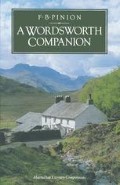Abstract
In February 1822 Wordsworth had the misfortune to read a mischievous article at his expense in one of the copies of The London Magazine he had obtained principally to read some of Lamb’s essays. Hazlitt’s ‘On Consistency of Opinion’ included an anecdote which he had heard from Charles Lloyd and dressed up as an illustration of the poet’s ‘impertinence’ and ‘ostentatious servility’. It describes how, about 1802, a romantic acquaintance who was ‘smit with the love of simplicity and equality’ (Wordsworth) used to call on a gentleman (Lloyd) in the evening, and snuff out one of the two candles on the table because he thought it ‘a shame to indulge in such extravagance’ when many a cottager had not even a rush-light. In 1816 this hater of luxury asked his extravagant friend to dine with him and a lord (Lowther), and lend him his man-servant to wait at table. Just before they were about to sit for dinner, the friend heard him (Wordsworth) instruct the servant to have six candles on the table. It was left to Mary Wordsworth, in an indignant letter to Tom Monkhouse, to deny the ‘cant’ about the rush-light, and to explain that William had once snuffed out a candle at Brathay because the light hurt his eyes, that Lloyd’s servant attended the dinner to watch and restrain his master, after his return from a Birmingham asylum, and that Lord Lowther had brought his own servant to wait at table.
Access this chapter
Tax calculation will be finalised at checkout
Purchases are for personal use only
Preview
Unable to display preview. Download preview PDF.
Notes
F. M. Todd, Politics and the Poet, A Study of Wordsworth, London, 1957, pp. 226–8.
In a note to 1. 171 of An Evening Walk (1793), Wordsworth states, for the benefit of the ‘curious traveller’, that ‘up the Duddon … may be found some of the most romantic scenery’ in the Lake District.
A.M. Terhune and A. B. Terhune (eds), The Letters of Edward FitzGerald, Princeton, 1980, vol. I, p. 60;
And Robert B. Martin, Tennyson: The Unquiet Heart, Oxford, 1980, p. 126. 1830 had been a year of revolutionary outbreaks in Europe, one leading to Belgian independence.
Mrs Humphry Ward, A Writer’s Recollections, London, 1919, p. 76.
Copyright information
© 1984 F. B. Pinion
About this chapter
Cite this chapter
Pinion, F.B. (1984). More Trachoma, Poetry, and Travel (1822–31). In: A Wordsworth Companion. Macmillan Literary Companions. Palgrave Macmillan, London. https://doi.org/10.1007/978-1-349-05718-4_16
Download citation
DOI: https://doi.org/10.1007/978-1-349-05718-4_16
Publisher Name: Palgrave Macmillan, London
Print ISBN: 978-1-349-05720-7
Online ISBN: 978-1-349-05718-4
eBook Packages: Palgrave Literature & Performing Arts CollectionLiterature, Cultural and Media Studies (R0)

